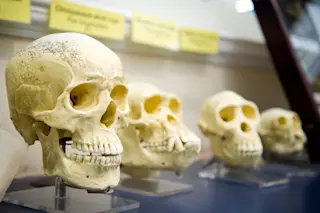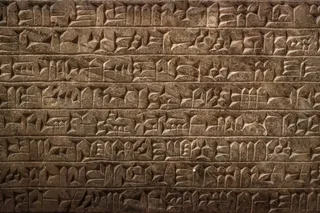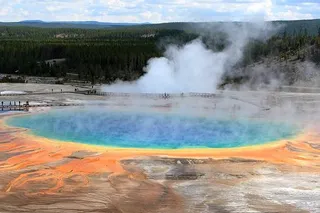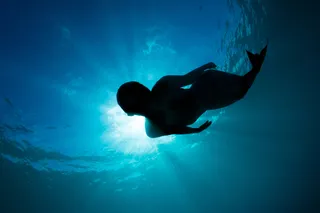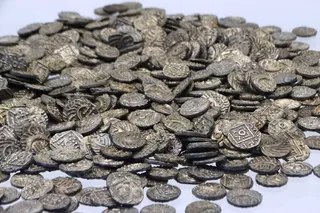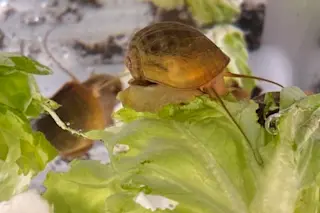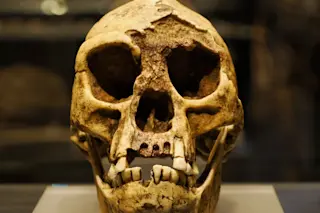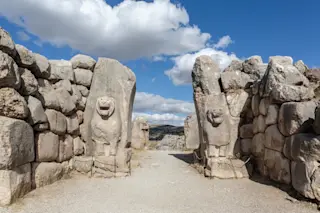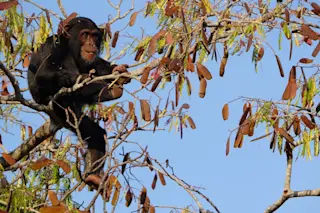When people think about evolution and human beings, the assumption is often made that we have stopped evolving. Once upon a time, we had to evade predators, compete with other hominid species and fight off disease. And thanks to modern society, agriculture, medicine, and technology, we've largely alleviated these physical selection pressures on our species.
Are Humans Still Evolving?
Perhaps we haven't stopped after all. Broadly speaking, evolution simply means the gradual change in the genetics of a population over time. From that standpoint, human beings are constantly evolving and will continue to do so long as we continue to successfully reproduce. What has changed, however, are the conditions through which that change occurs.
What Causes Evolution?
In our evolutionary past, those who were best adapted to their environment — and who could successfully find a mate — passed on their genes. Infection, low life expectancy and other medical complications would have meant significant numbers of people would not have contributed to the overall human gene pool.
Evolution and Modern Medicine
Now, modern medicine has allowed those who would not have previously survived to pass on their genes. While this increases an individual's quality and longevity of life, there are other evolutionary consequences, as well. For starters, it means that genes which have little to no resistance to disease are more prevalent, with people growing increasingly reliant on medicine to deal with threats to human health.
Cesarean Sections
An example of medical practices influencing selection pressures on humans is the widespread use of the Cesarean section. Back in 2016, a group of researchers led by Philipp Mitteröcker, a theoretical biologist at the University of Vienna, suggested the current prevalence of Cesarean sections could be impacting human evolution.
In our evolutionary past, women with more narrow hips were more likely to die during childbirth, but thanks to Cesarean sections, slimmer women now have a much higher chance of surviving childbirth and passing on their genes. The practice also relieves selective forces toward smaller head sizes in babies. While this could mean babies will grow to be larger at childbirth, babies of smaller weights, or those that are born prematurely, are also much more likely to survive today than in the past.
Evolution and Agriculture
The mass production of food through agriculture has also shaped humanity's evolutionary landscape. The advent of agriculture roughly 10,000 years ago enabled urbanization and the drastic increase in population density, along with the mass domestication of animals. As such, people became increasingly exposed to pathogens carried by other groups of humans and animals, causing the human immune system to adapt in response.
Lactose Intolerance
An evolutionary response to the agricultural revolution in human beings has been the lactose tolerance in adults. In populations of people with a history of cattle domestication, adults generally have the ability to digest lactose, whereas in most groups globally, lactose digestion declines after waning. Scientists have shown that the selection for lactose persistence began roughly 5,000 to 10,000 years ago with the emergence of dairy farming.
“Eating particular foods modifies how natural selection acts on the population, to favor genes that allow that diet to be broken down," says Kevin Laland, a biologist who studies animal behavior and evolution at the University of St Andrews. "Genes involved in the metabolism of proteins, carbohydrates, lipids, phosphates, dairy products and alcohol all show signs of recent selection in response to human culture."
“Our agricultural practices and aggregation into towns and cities inadvertently propagated crowd-borne and animal-borne diseases, such as malaria and tuberculosis, generating strong selection for genes that confer resistance to these diseases,” he adds.
Evolution and Culture
In addition to medicine and agriculture, human culture itself is driving our evolution. Organisms have to adapt to their environment to survive, and much of the human environment is determined by our culture, which has been accelerating since the birth of civilization.
Cultural Norms and Conditions
While culture changes much more rapidly than our genes, cultural norms and conditions can affect who is more likely to pass those genes onto the next generation.
“Researchers from diverse backgrounds are converging on the view that human evolution has been shaped by gene–culture interactions," says Laland. “Culture is not just the magnificent end product of an evolutionary process — it was also the key driving force behind that evolution."
Have Humans Stopped Evolving?
While we have overcome a number of the conditions that once drove the evolutionary trajectory of our species, that doesn't mean that humans have stopped evolving. Rather, the picture painted by Laland and other evolutionary biologists suggests the rapid evolution of culture is driving our biological evolution in ways that may even outpace our ancient ancestors.
Read More: Human Evolution in the Modern Age



